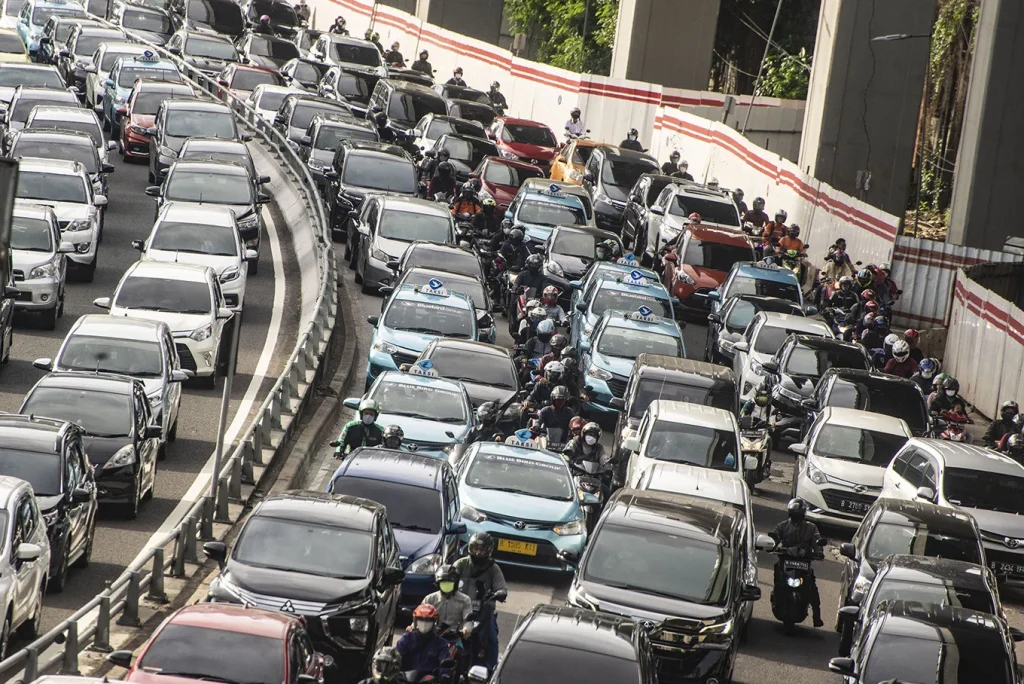In a bold move to address one of Southeast Asia’s most notorious traffic problems, the Jakarta city government has officially launched an AI-powered traffic management system, marking a new era in the capital’s urban mobility planning.
The new system, named SmartFlow Jakarta, was unveiled this week at a press conference held at the Jakarta Smart City Command Center. City officials hailed the technology as a transformative solution to decades of traffic gridlock, pollution, and commuting inefficiencies that have plagued the city of over 11 million residents.

🚦 How It Works
SmartFlow Jakarta uses a combination of real-time traffic camera feeds, GPS data from public and private vehicles, and machine learning algorithms to monitor, predict, and adjust traffic flow across 5,000+ intersections in the Greater Jakarta area.
Unlike traditional systems that rely on fixed timers, the AI solution can dynamically:
- Adjust traffic light durations based on vehicle density
- Predict congestion hotspots before they form
- Reroute city buses and emergency vehicles in real time
- Alert authorities to accidents or road closures instantly
According to the Jakarta Transportation Agency, the system is expected to reduce average commute times by up to 28% within the first six months.
🤖 Partnership with Canadian Tech Firm
In a surprising international collaboration, the core AI engine was developed in partnership with MobilityAI, a Toronto-based smart city solutions provider.
“Jakarta’s urban density presents one of the world’s most complex traffic environments,” said Dr. Lina Martawidjaja, Chief Innovation Officer at Jakarta Smart City. “Partnering with Canadian experts has allowed us to leapfrog years ahead in terms of infrastructure and intelligence.”

MobilityAI’s CEO, Nathan Cho, praised the joint effort: “We combined our technology with Jakarta’s extensive traffic data and local knowledge to create a truly adaptive system.”
📊 Early Pilot Results
A three-month pilot program conducted in Central and South Jakarta earlier this year showed promising results:
- Travel time reduction: 22%
- Vehicle idle time at intersections: Down 35%
- Public satisfaction: 4.3 out of 5 (via community surveys)
Motorists using the new SmartFlow App can also receive personalized route recommendations and real-time updates on congestion and road incidents.
🚗 Challenges Ahead
While the launch has generated optimism, experts warn of possible hurdles:
- Data privacy concerns surrounding live GPS tracking
- Need for driver education on interacting with smart signals
- Limited integration with motorcycle-heavy lanes common in Jakarta
The government has stated that transparency and regular auditing will be key to maintaining public trust.
🏙️ Looking Forward
Governor Hadi Susanto called the initiative “a milestone in Jakarta’s transformation into a future-ready city.” The full rollout of SmartFlow Jakarta is expected to be completed by early 2026, with plans to expand the system to neighboring cities like Bekasi and Tangerang by 2027.
“We are not just managing traffic,” said the governor, “we are reshaping how our citizens move, work, and breathe in their city.”
As Jakarta embraces artificial intelligence on its roads, the world watches closely — hoping the city once known for its chaotic traffic may soon become a model for smart urban transportation in the developing world.
Reporting by greenfuturelab.tech Jakarta Bureau
Contact: [email protected] — +62 21 3048 7765
